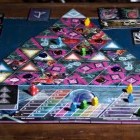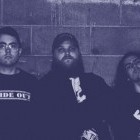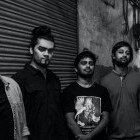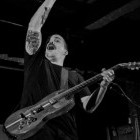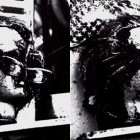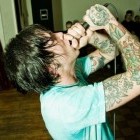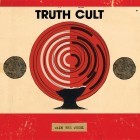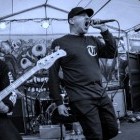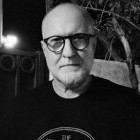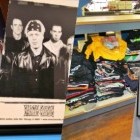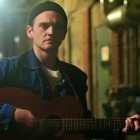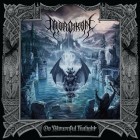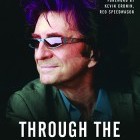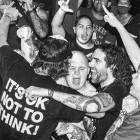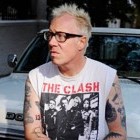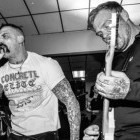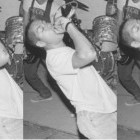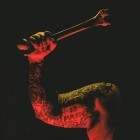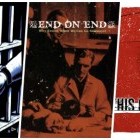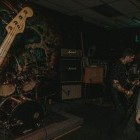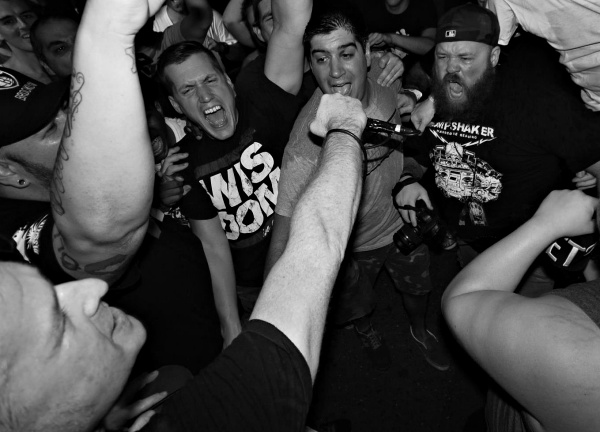
Since the early '90s, Robby Redcheeks has been a staple of the East Coast hardcore scene. Through his tireless work as a promoter, he helped put on some of the most memorable shows in the Philly and New Jersey area. He also sang in Damage, a hardcore band that released music through Deathwish Inc, among other labels. You might also know Robbie from his photography, shooting the best of the best hardcore bands we all know and love.
He might not be actively shooting bands anymore, but his past work definitely makes Robby a great Photographer Spotlight entry.
Where were you born and raised, and were your parents into the arts?
I was born in Atlantic City, NJ. No, they weren’t, but they were both heavily into music going to see bands like Black Sabbath, Led Zeppelin, and Uriah Heep. I remember spinning Beatles and David Bowie records with my mother when I was young. I did have a great-grandmother on my Dad's side that was a painter.
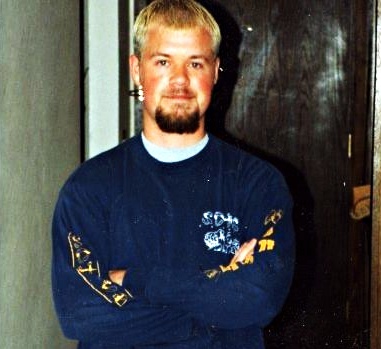
What came first, your love for music, or your love for photography?
100% music. As I said I started at a young age. My first record was Beatles Rubber Soul. When I was probably 7 or so, my mother was dating a radio DJ from our town's oldies station. He would bring me home records all the time. Stuff like Beatles' "Penny Lane," "Nowhere Man," a bunch of other singles by them. By fifth grade, I started to get into hip-hop. I would stay up late at night on the weekend to tape songs off of Power 99 (if I remember correctly). I remember staying up to tape "Fight for Your Right to Party" all weekend, and I finally got it. That’s what you had to do back in the day. The Beastie Boys changed my life. They were a huge influence on my style. I still wear Campus Adidas because of them.
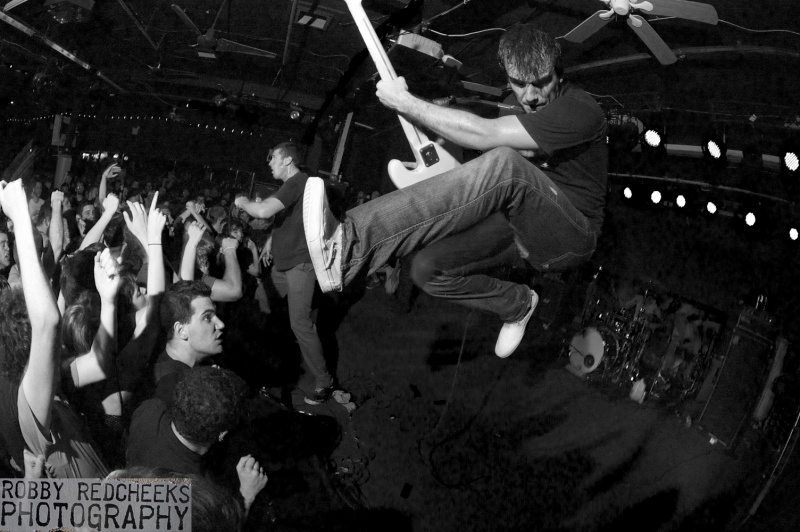
How did you discover hardcore?
Well, at my first day of High Schoo,l I brought along my skateboard. This guy, Rich Kiple, also brought his. He had a Gorilla Biscuits shirt on, and the rest was history. That was the winter of 1988. That winter I started going to shows, mostly at City Gardens and Unisound, or at Revival in Philly. I didn’t start getting involved in hardcore till the first show I booked in 1992, then did my second show in 1995 in Philly. That’s when I really got involved.
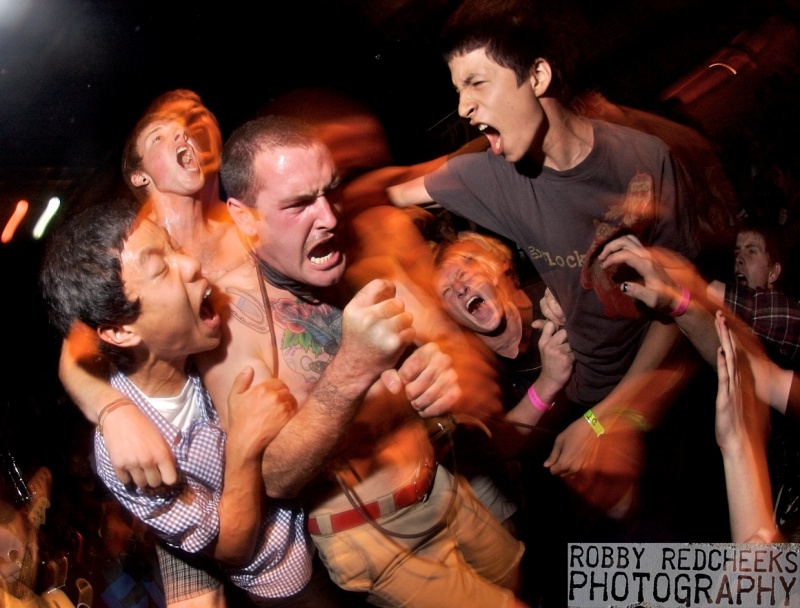
Who were some of the photographers you looked up to during your younger years?
In 1996 I lived in a house in Philly called 314. This is where Ink & Dagger was born. In that house we had Matt Smith doing Contention Records and zine. Rob Barber booked shows at U of Arts, Don and Sean doing Dagger and Mandela Strike Force and booking shows, me booking shows, and Justin Moulder use to do Suburban Fanzine. He was one of my first influences for sure. I used to look through his boxes of photos for hours on end. I always loved art but was not artistic. Everything changed for me when Justin brought the Glen E. Friedman book Fuck You Heros home. That was the moment I decided to get a camera. I always loved art, but I couldn’t draw. So Glen is pretty much who I blame for my love of photography, along with photographers of that time, Dave Mandel (he also gave me my first photo credit on a record, the Botch/Nineironspitfire split 7”), Traci McMahon, Mark Beemer, Danielle Dombrowski, and Justine Demetrick. Back then there weren’t a lot of photographers in the hardcore scene, but these people captured what was happening at the time.
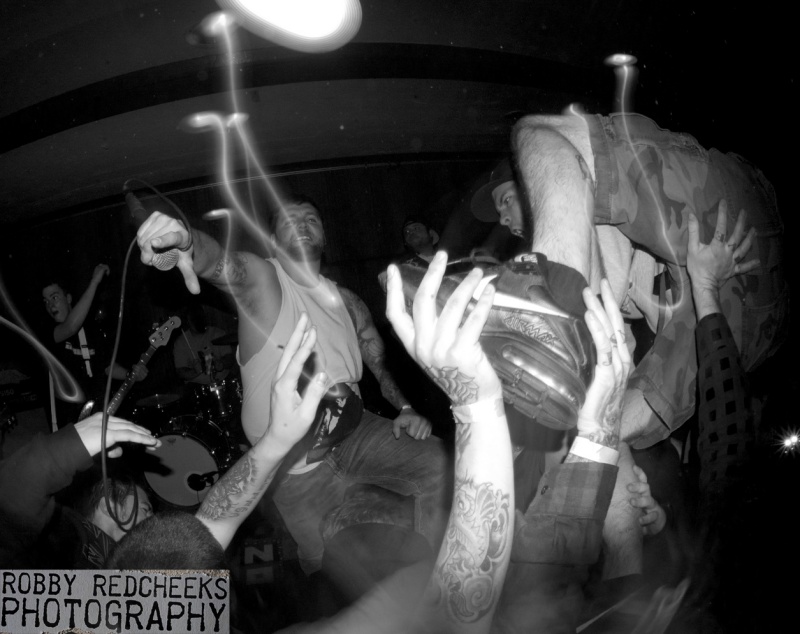
What is your camera and post set up?
I started on Minolta, then I sold that camera when I moved to NYC in 1998. When Sean Mccabe died, me and Ryan Mclaughlin went to my Mom's house to find photos for the funeral. I realized that I was actually pretty good at it and decided to get another camera. I went with Nikon because they seemed more indestructible, and have been with Nikon ever since. I use Apple Aperture and Photoshop for editing.
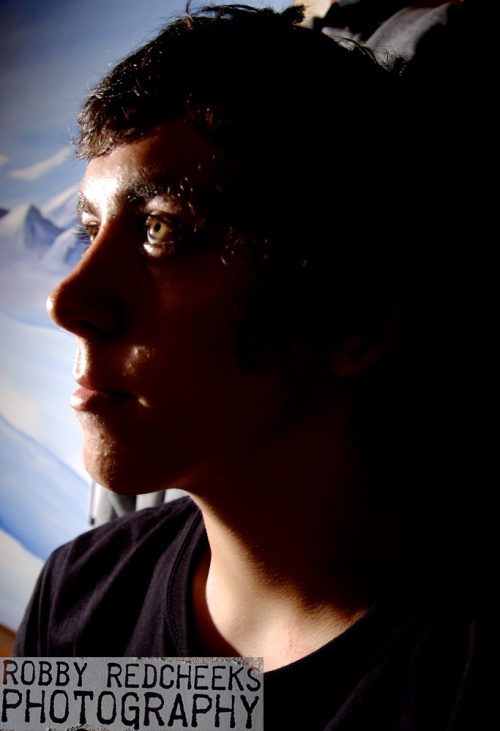
Who are some of your favorite bands to shoot?
Well friends bands are always at the top of the list like Blacklisted, Cold World, 108, and any band Bob Wilson is in. Title Fight is always great because Ned Russin makes it easy to get a good photo. Vic DiCara is also on that list if not at the top.
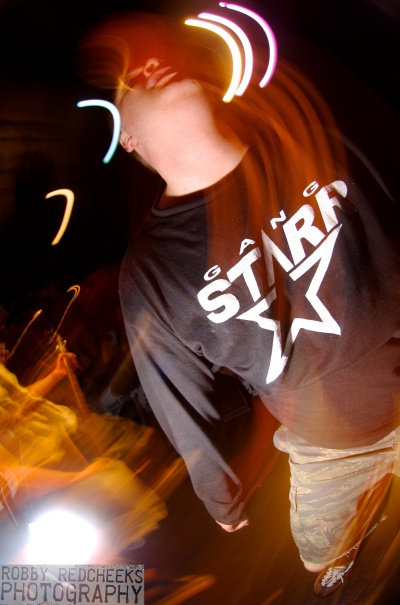
Since you’ve also played in bands, has that helped inform what you do?
Well yes and no. I guess being in bands makes me understand movements by members and crowds. I shoot from in the crowd primarily. Knowing how the bands move and knowing their music real well helps out the most. If you know a jump part is coming up you know to aim at the guitarist that jumps at every jump part. Knowing that Dave Jannes is staring at you from across the stage means you are about to get a great stage dive shot. Just knowing the situation has helped, reading the crowd and band. I can read a moment and know whats going to happen almost in slow mo before it happens. Its hard to explain.

If you could go back in time, who are some bands that you would have loved to shoot?
I would have taken a camera to hip-hop shows, for sure, and I would have also taken skateboarding photographs. I should have learned more from Glen. As for hardcore bands, I would say Bad Brains in their prime, but that’s probably it. I'm grateful for the time I was involved. I got to shoot most of the bands I was around.
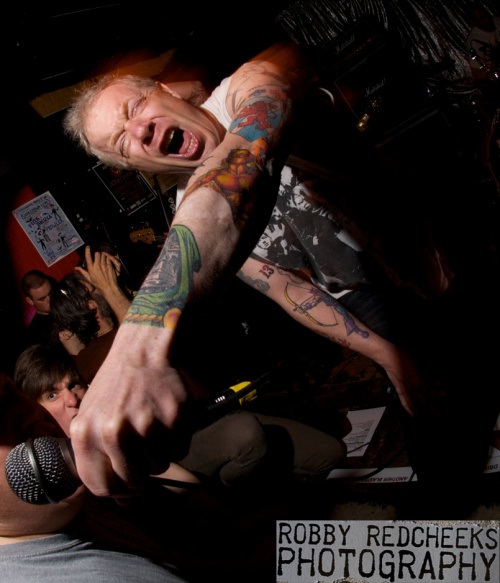
What are the toughest aspects to shooting hardcore shows?
Getting knocked out many times. This is why I quit shooting. After getting knocked out at least seven times in the last decade, I had to give it up. Converge at This is Hardcore was the final straw. I worked my way up to the center in front of the stage to get some shots of Jake. Soon as I got there, he announced they would play a song they never play anymore: "The Saddest Day.” I instantly I said “fucking shit” to myself. The place went insane and I was knocked out 30 seconds later. I had a pretty bad concussion for the rest of the weekend. After that, I decided to call it quits.
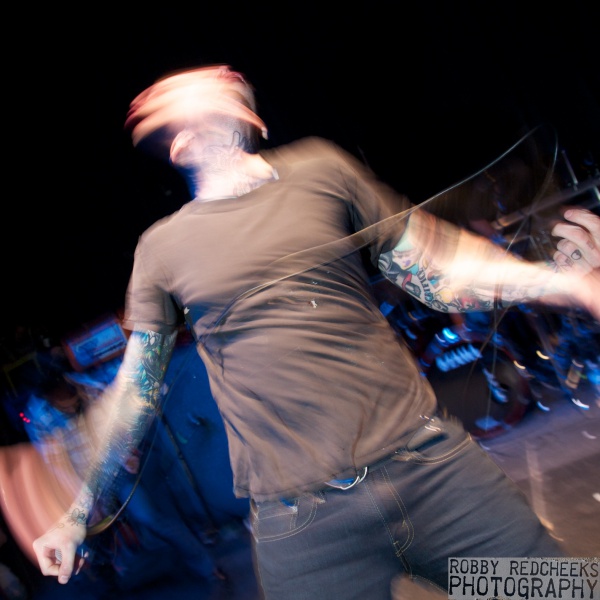
Tell me about some newer bands that we should all be on the lookout for.
I wish I had a good answer for this. I'm so busy with work I cant keep up with newer hardcore. Let's see... like Jesus Piece and Incendiary.
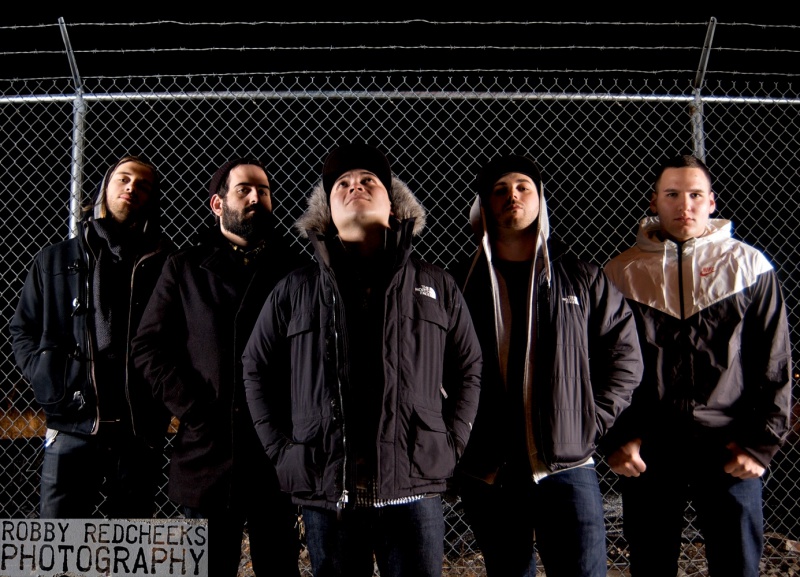
Who are some modern-day photographers that you admire?
Danielle Parsons, Todd Pollack, and Anne Spina has really come a long way. She's killing it with photos lately. Jim Meadows is high on my list for a few reasons. One, hes one of my oldest friends, two, he shoots like I do, in the mix of all the chaos. JCPhotomedia keep posting photos I wish I had taken. I love Rachel Wass. Speaking of Rachel, she is doing a one-day pop-up exhibit with me, Anne Spina, and Catherine Carrozza on September 18th in Bristol, PA. I plan on unleashing some never before seen Ink & Dagger tour photos. It should be a fun time.
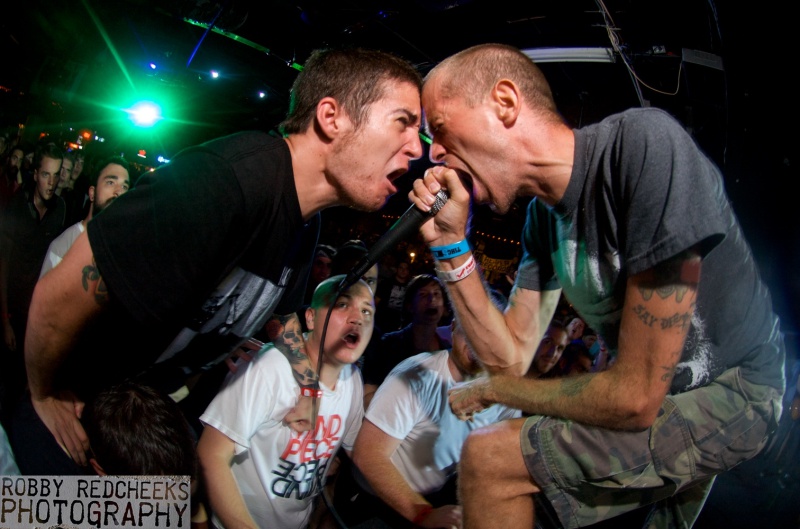
If you had to pick one of your photos that best encapsulates why you love shooting hardcore bands, which one would it by and why?
An important shot in my career is probably the photo of Vic Dicara on 108's A New Beat From a Dead Heart album. This was a turning point for me. Jake Bannon is a huge influence to me. He's one of the reasons why im good at what I do. I did lots of photography for Deathwish, and I have photos on a bunch of their records, thanks to Tre and Jake. This one particular photo of Vic I almost didn’t include with the batch I sent to Jake. And he picked that photo, and I was blow away because I hadn’t realized how great of a photo it was until I saw the 12” of the record. It was a perfect shot and I hadn’t realized it at the time. So, that photo doesn’t exactly encapsulate anything for me, but it was a very important moment when I started to see my photos in a different light. That made me a better photographer.
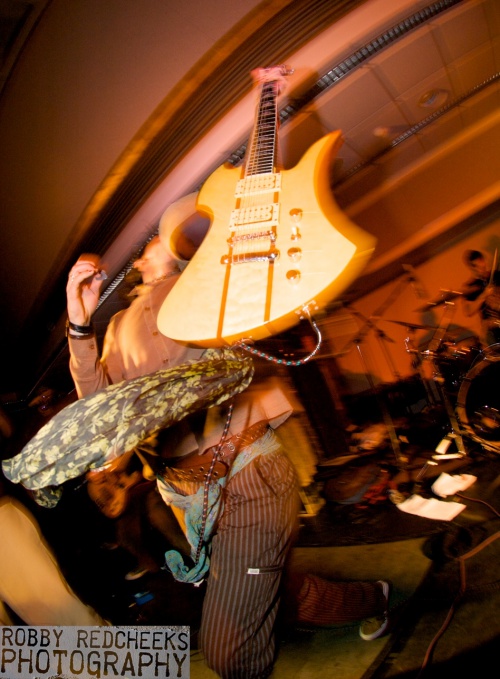
I got back into photography because it was a way for me to still be involved with the scene without booking shows or putting out records. I had chosena a career at Trader Joe's and that didn’t allow me to keep booking shows or being so involved with Philly hardcore. So, for me, it was a lifeline. It's hard to spend your life being involved with something and just walk away. I have had to do that again by choosing to not shoot bands anymore. I think next I want to sing in a band again. Nothing serious, just do a 7” maybe play a show once in a while. If anyone is interested, give me a shout. Maybe I should call it Lifeline?
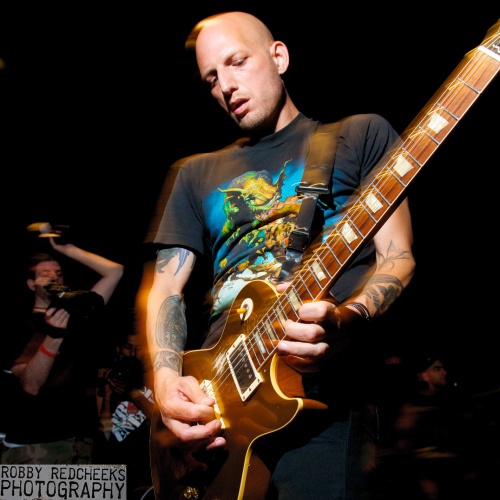
***
Follow Robby Redcheeks' Facebook page to see more of his photo work.
Tagged: photographer spotlight, robby redcheeks

